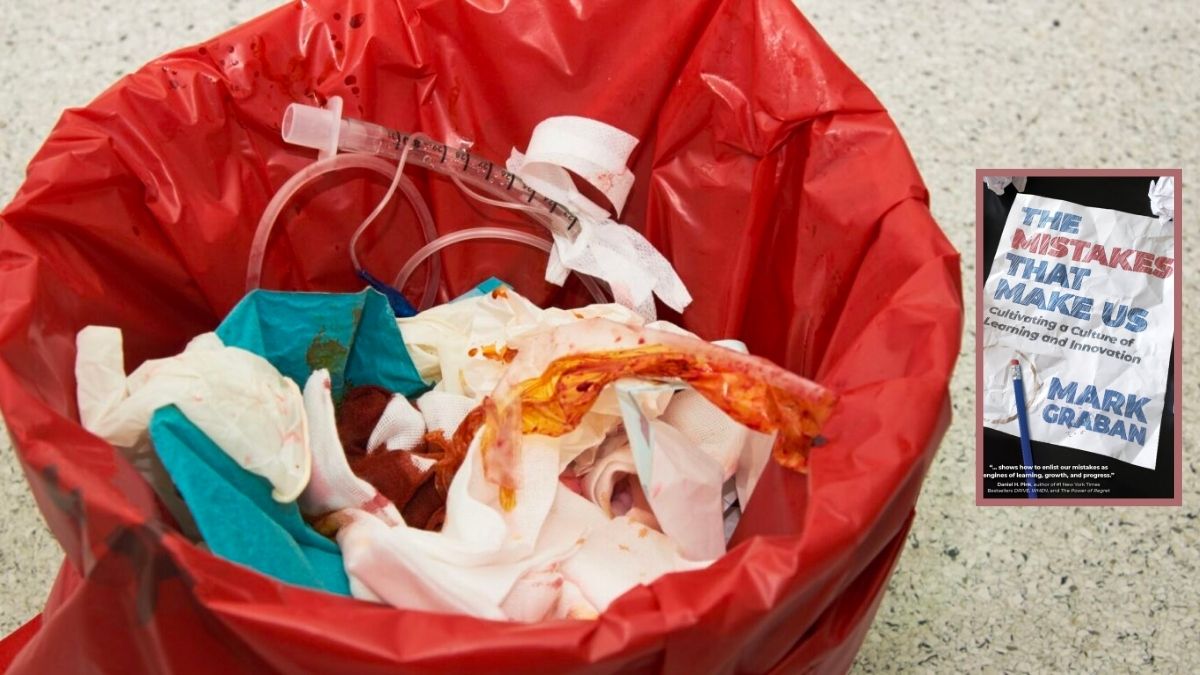Being oriented around learning from mistakes doesn’t mean we are flippant about mistakes and human error. There are some mistakes that we should work really hard to prevent through checklists, mistake-proofing methods, and good systems. Telling people to “be more careful” isn’t really effective.
I saw this in the news the other day:
Patient’s surgically removed tumor was lost, can’t be tested for cancer, lawsuit says
It’s the type of mistake that ideally never happens to begin with. And that’s possible with good processes, systems, and training being in place.
But when it does happen…it’s better to follow the mistake with a sincere apology and a learning orientation. Even if it was ideal to proactively prevent the mistake, what’s done is done and it’s time to learn and prevent the same mistake from happening again.
After being told he most likely had cancer, leading to a procedure to remove the tumor…
“On Sept. 2, 2022, the urologist who performed Morton-Maxson’s surgery told him the hospital lost his tumor, and it wasn’t analyzed, the complaint and release says.”
When a biopsy or tissue, like a tumor, is removed from a patient in the operating room, it has to be sent to the Pathology Department for processing and analysis. There need to be clearly defined and lock tight procedures to make sure the chain of custody from the O.R. to the lab is solid. That means not losing the specimen (which most likely means it was thrown away with surgical trash). Sometimes specimens (the containers they are in) get mislabeled with another patient’s name — another mistake that should never happen.
Because they couldn’t confirm that the patient, Jeremy Morton-Maxson, 39, of Seattle, had cancer, they offered him “proactive chemotherapy” (assuming then that he did have cancer). The patient refused that and did agree to more frequent check ups, described as “painful and invasive,” to look for signs that the cancer had spread.
This response would be additionally upsetting:
“Ultimately, Morton-Maxson says UW Medicine hasn’t apologized for losing his tumor.”
Some studies have shown that patients (and their families) are less likely to file a lawsuit when the surgeon and/or health system apologizes.
The article says nothing about the health system’s internal response. I hope they are focused on learning and process improvement instead of blame and punishment.
“How could this have happened?” and “How might we prevent this?” are better questions than “Who screwed up?” and “Who do we hold accountable?”
Morton-Maxson seems reasonable and understanding:
“I understand that we all make mistakes — I know how understaffed, overworked and underpaid hospital nurses and technicians are, which I am sure played into this,” Morton-Maxson said. “But in those instances, you need to hold up your hand and say ‘I messed up and I am sorry.’”
The patient doesn’t seem to be looking for an individual to be blamed and punished, so I applaud that. I hope UW Medicine shares that view.
But I can understand why he would sue the organization to hold them accountable for systemic causes — and doing so can co-exist with not looking to blame or scapegoat an individual.
And, finally, back to those studies…
“Morton-Maxson said that if UW Medicine “owned up to their error and apologized,” the issue wouldn’t have been brought to court.”
A colleague who has worked in operating rooms for a long time shared this story with me about a different health system some years ago:
“Reminds me when the nurse put Dr. _______’s patient specimen, urologist at ______ Medical Center, in the trash bag and put it down the trash chute and it went on the loading dock… and ended up in the dumpster, where I spent the next five hours in the middle of the summer, digging out the bag, and eventually finding the patient specimen.”
I hope that incident led to process improvement instead of blame and punishment. Just because the outcome wasn’t as bad… that was still an opportunity to improve. Because, otherwise, they might not have found the specimen the next time.




The Washington Post also reported on this:
https://www.washingtonpost.com/nation/2023/09/12/hospital-lost-tumor-lawsuit-washington/